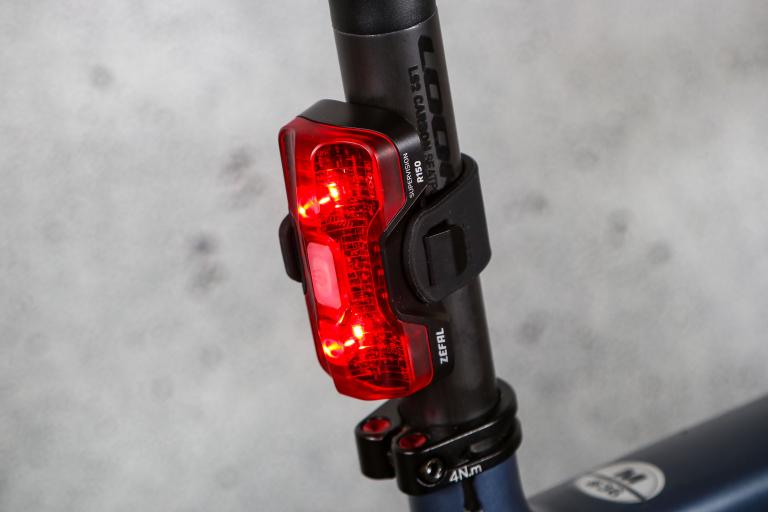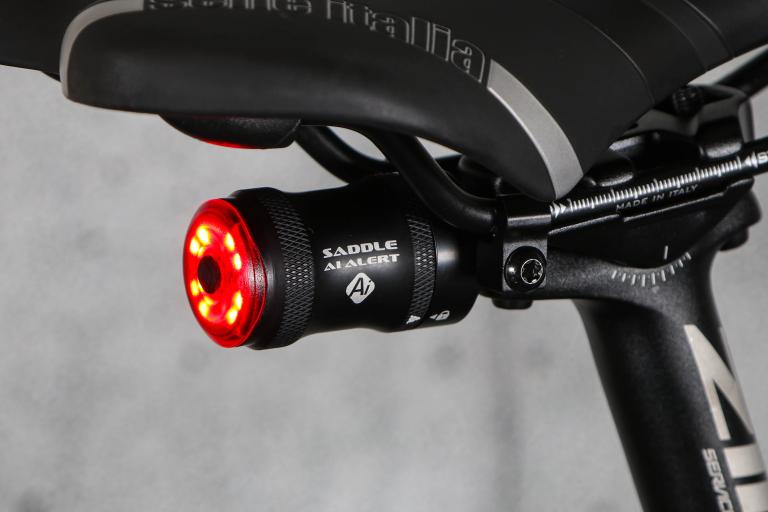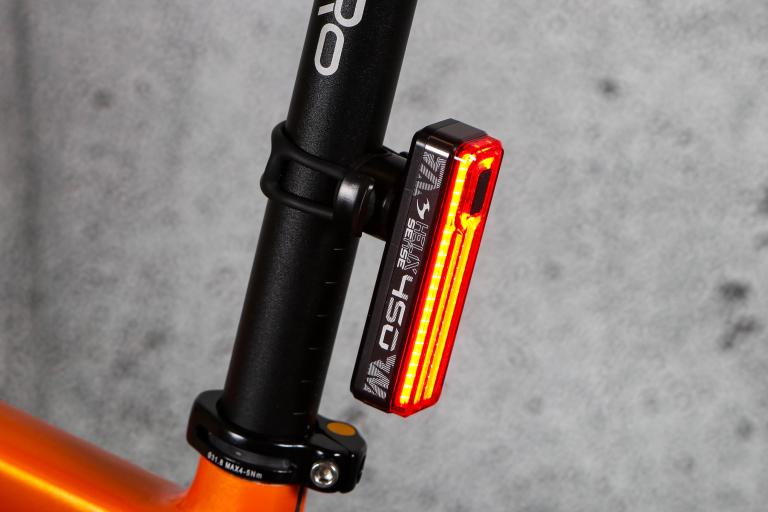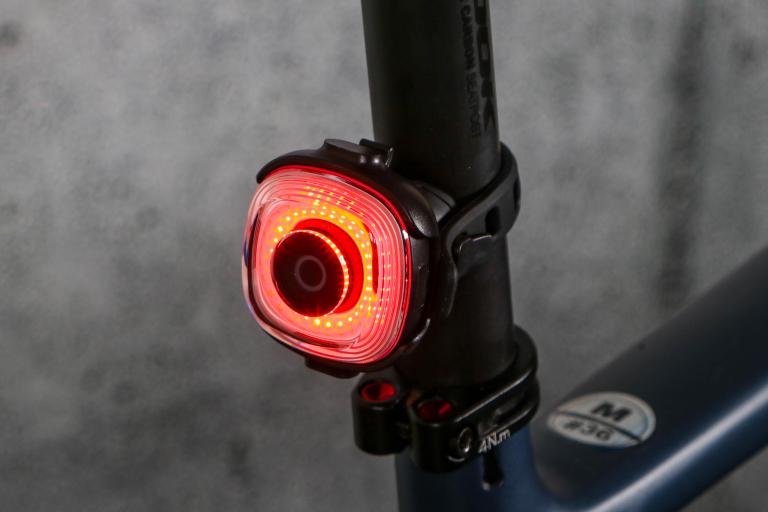- News
- Reviews
- Bikes
- Components
- Bar tape & grips
- Bottom brackets
- Brake & gear cables
- Brake & STI levers
- Brake pads & spares
- Brakes
- Cassettes & freewheels
- Chains
- Chainsets & chainrings
- Derailleurs - front
- Derailleurs - rear
- Forks
- Gear levers & shifters
- Groupsets
- Handlebars & extensions
- Headsets
- Hubs
- Inner tubes
- Pedals
- Quick releases & skewers
- Saddles
- Seatposts
- Stems
- Wheels
- Tyres
- Tubeless valves
- Accessories
- Accessories - misc
- Computer mounts
- Bags
- Bar ends
- Bike bags & cases
- Bottle cages
- Bottles
- Cameras
- Car racks
- Child seats
- Computers
- Glasses
- GPS units
- Helmets
- Lights - front
- Lights - rear
- Lights - sets
- Locks
- Mirrors
- Mudguards
- Racks
- Pumps & CO2 inflators
- Puncture kits
- Reflectives
- Smart watches
- Stands and racks
- Trailers
- Clothing
- Health, fitness and nutrition
- Tools and workshop
- Miscellaneous
- Buyers Guides
- Features
- Forum
- Recommends
- Podcast
review
£21.99
VERDICT:
Potentially a good light but braking sensor and bracket need refinement
Weight:
33g
Contact:
At road.cc every product is thoroughly tested for as long as it takes to get a proper insight into how well it works. Our reviewers are experienced cyclists that we trust to be objective. While we strive to ensure that opinions expressed are backed up by facts, reviews are by their nature an informed opinion, not a definitive verdict. We don't intentionally try to break anything (except locks) but we do try to look for weak points in any design. The overall score is not just an average of the other scores: it reflects both a product's function and value – with value determined by how a product compares with items of similar spec, quality, and price.
What the road.cc scores meanGood scores are more common than bad, because fortunately good products are more common than bad.
- Exceptional
- Excellent
- Very Good
- Good
- Quite good
- Average
- Not so good
- Poor
- Bad
- Appalling
The Xeccon Mars 30 rear light has generally build and better presence than the numbers would imply. However, the bracket, though not beyond redemption, needs redesigning.
Technology
Inside the big clear ABS plastic dome (which reminded me of a Portuguese man 'o war, without the tentacles) sit 30 'chip on board' LEDs.
Sitting them directly on the PCB means more can be crammed into the same space, thus providing greater visual punch, compared with more traditional models of similar output.
Buy Xeccon Mars 30
Find a Xeccon dealer
They are fuelled by a 300mAh lithium ion cell, which is reckoned good for 300 charge cycles. It charges via the usual Android phone type micro-USB cable. Refuelling takes a relatively pedestrian four hours but on the flip side, the flashing mode is very gentle on the battery.
The 'smart' element lies in the unit's ability to switch to a 30-lumen constant mode, theoretically to denote braking.
Given brake lights aren't standard on bicycles, there's little to suggest drivers recognise this particular signal but it seems intense enough to keep them at a comfortable distance.
Build quality/Waterproofing
The main unit feels very solid, more so than typical of this price point. The USB port is positioned out of harm's way and the plug fits very securely. Although Xeccon don't cite an IPX rating, I've had no problems, despite some pretty heavy downpours. Cursory blasts from my garden hose haven't revealed any obvious weaknesses either.
Switch
This is a sensibly proportioned side mounted affair, intuitive to use and locate even wearing full-finger, winter-weight gloves. A two-second press brings it to life and subsequent, single nudges cruise through the modes. Debate rages but for the most part, three covers the basics competently. In this instance we're talking steady, flashing and daylight-braking only, by another name.
Powering down also requires a constant, two second press. This and the relatively positive feel means unwanted, bottom of the bag engagements will be rare events. It doesn't remember the mode you were using last, but that's a convenience rather than something I'd get excited about, given there are just three modes. The high, flashing and daylight modes put out 20, 10 and 30 lumens respectively.
> Buyer's Guide: The best front lights for cycling
Bracket
This is a hybrid of hinged and watch strap and very disappointing, since I was never able to get the knurled plastic pin wound tight enough. This meant, over the course of an hour's riding, the light would be misaligned, often projecting upward beneath the saddle, rather than at driver eye-line.
There is scope for seat stay mounting and this seems to cure the problem. I moved ours below the cantilever posts on my fixed gear bike, which largely overcame its appetite for misalignment. Nonetheless, it's hardly going to enjoy universal appeal, since most of us like the option of post mounting.
Output/Performance
The highest, steady setting is good and projects a decent 180 degree cloak of light. Generally speaking 30 lumens is my benchmark for lonely lanes and faster backroads but this is mitigated by the braking function, which boosts output when you slow slightly.
Assuming of course, the hinged bracket hasn't done its rotational trick, the high mode seems to register around the 175 metre mark, dipping to around 125 in town because of competing illumination. Again, the braking mode certainly helps, say when approaching roundabouts, but if I'm intentionally heading that way, flashing is that bit better, thus my default.
Allowing for the auto engagement setting, in flashing mode I've had a good 12 hours from a full charge. Visibility is to 175 metres on a clear night, 125 in suburban contexts. The steady mode is reckoned good for three hours. The highest, steady setting has returned 2hrs 43min. Either way, there's some visual warning when reserves drop to 15%.
The 'intelligent' braking is useful to a point. While it's bright, relative to specification, it's not what we've come to expect of a daylight mode. There's a pause of a second or two before it registers change of pace and disengages. However, the increased presence when breaking on a wet, overcast day is definitely a bonus.
Conclusion
The Mars 30 is a pretty good light for the money but scuppered by a silly bracket. Despite some lovely touches, I would be hard pressed to recommend it over a less powerful unit such as CatEye Rapid Micro rear, which on paper offers less bang for your buck. However, the CatEye is more potent than 30 lumens suggests and the simple O-ring bracket means it will stay where you need it.
Verdict
Potentially a good light but braking sensor and bracket need refinement
road.cc test report
Make and model: Xeccon Mars 30 Rear
Size tested: 30 lumens
Tell us what the light is for, and who it's aimed at. What do the manufacturers say about it? How does that compare to your own feelings about it?
This is a clever light for the money that delivers decent presence but the braking mode feels under-developed and the bracket needs re-designing
Xeccon says:
"With the innovative functions and features of smart brake indicating system, smart off system and smart day riding mode, will our Mars 30 the smartest taillight which make your riding no matter day or night fashion and safe.
"Smart Brake Indicating System (SBIS): Regardless of any mode being riding on, SBIS will be activated once you brake, and this Mars 30 will turn to an ultra bright mode to alert others behind.
"Smart OFF System: Light will turn off automatically after 5 minutes of inactivity.
"Smart Day Riding Mode: Man can ride under this Day riding mode at daylight, as it wouldn't turn on when riding, once you brake, the SBIS will work like under other modes. This wouldn't disturb others when riding, but can make you safe once you brake".
Tell us some more about the technical aspects of the light?
LED: High Intensity Red LED
Max Output: 30 Lumens
Run Time: 3-13 hours
Mode: Steady-Flash-Day Riding Mode
OFF Mode (Hold 2 seconds)
Micro USB Rechargeable
Material: ABS+Plastic
Battery: 300mAh Internal Rechargeable Battery
Charging Time: 3.5 hours
Waterproof Level: Water Resistant
Weight (w/ Battery): 32g
Dimensions: 57(L) x 28(W) x 24(H)mm
Rate the light for quality of construction:
6/10
Bracket aside, generally well made.
Rate the light for design and ease of use. How simple was the light to use?
6/10
Very straightforward but this is somewhat frustrated by the bracket.
Rate the light for the design and usability of the clamping system/s
4/10
Bracket is very flawed-tends to slowly pivot upwards over the course of a ride, illuminating the underside of saddles/wedge packs when post mounted.
Rate the light for waterproofing. How did it stand up to the elements?
6/10
No IPX rating but no problems to date, despite some pretty heavy showers and general exposure to wet, mucky stuff.
Rate the light for battery life. How long did it last? How long did it take to recharge?
5/10
Reasonable run times but charging might frustrate some.
Rate the light for performance:
5/10
Not bad, relative to the numbers and if you've got the bracket behaving.
Rate the light for durability:
6/10
Light seems well sealed but marred by the bracket.
Rate the light for weight:
7/10
Rate the light for value:
6/10
Potentially very good but loses a point due to the swivelling bracket.
Tell us how the light performed overall when used for its designed purpose
Overall, the Mars 30 has potential. I'm not completely convinced by the brake function but the increased intensity is welcomed, especially in stop/go traffic. Three modes is pretty much all we really need and all offer decent presence. However, the bracket's design is a particularly strange choice given its bigger sibling seems to use a sturdy rubberised watch-strap type.
Tell us what you particularly liked about the light
Interesting light and more potent than numbers suggest.
Tell us what you particularly disliked about the light
Bizarre choice of bracket.
Did you enjoy using the light? Yes
Would you consider buying the light? Yes, -but only with an improved bracket.
Would you recommend the light to a friend? Not in its present guise
Use this box to explain your score
A potentially great little budget light, spoilt by a poorly designed bracket. I have managed to overcome some of the problems by mounting it uner my fixed gear bike's unused cantilever bosses.
About the tester
Age: 43
I usually ride: Rough Stuff Tourer Based around 4130 Univega mtb Frameset My best bike is: 1955 Holdsworth Road Path and several others including cross & traditional road
I've been riding for: Over 20 years I ride: Most days I would class myself as: Experienced
I regularly do the following types of riding: cyclo cross, commuting, touring, fixed/singlespeed, mtb,
Shaun Audane is a freelance writer/product tester with over twenty-eight years riding experience, the last twelve (120,000 miles) spent putting bikes and kit through their paces for a variety of publications. Previous generations of his family worked at manufacturing's sharp end, thus Shaun can weld, has a sound understanding of frame building practice and a preference for steel or titanium framesets.
Citing Richard Ballantine and an Au pair as his earliest cycling influences, he is presently writing a cycling book with particular focus upon women, families and disabled audiences (Having been a registered care manager and coached children at Herne Hill Velodrome in earlier careers)







- looks like someone has fallen for the steel is real markerting BS. I only care how a bike rides, not what it is made of. I had a lovely steel...
That argument is ignorance of the widespread height and width restrictions to be found on the many minor roads that were originally created for...
cyclists should be made to have number plates - Interesting police video here of the range of illegal number plates - we'd got, as the caption says...
Some kind of lens cleaner apparently
The trailer seems to connect to both ends of the rear axle. Can it do tight corners without dragging the tyre sideways?
Motorists have always been unkind to cyclists, but distracted driving is adding to the problem....
Have you owned Bont shoes? In my experience even the widest Lake shoes have had a bizarre form of narrowing way too much in the toe area. But the...
Not sure if this is possible, but this news letter goes out all over the world, and some places like Decathlon does not send stuff to America, in...
I'm confused as to why you'd need bib shorts indoors.
I'm sure you were being sarcastic... however ... Lewis Hamilton lives in Monaco. Yet another car driver that doesn't pay any tax